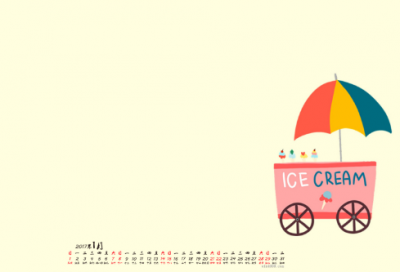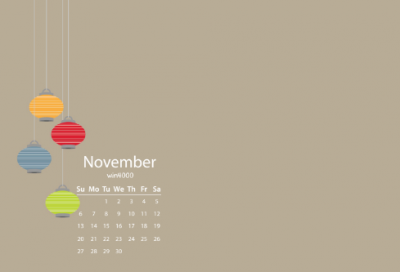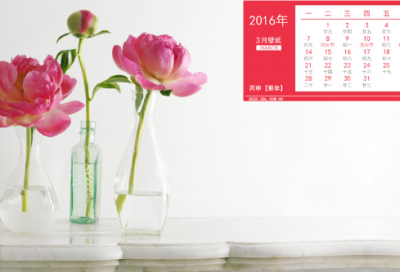书信开头结尾的常用句型
书信开头结尾的常用句型
1、书信开头结尾的常用句型
信件开头常用语:You letter came to me this morning. I have received your letter of July the 20th. I’m writing to you about the lecture to be given next Monday. I’m writing to ask if you can come next week. How time flies! It’s three months since I saw you last. Thank you for your letter. In reply to your letter about (the exhibition this year)…; Let me tell you that…
信件结尾常用语:

Please remember me to your whole family. Give my best regards (wishes) to your mother. Best wishes. With love. Wish you a pleasant journey. Wish you success. Wish you the best of health. (luck) Looking forward to your next visit to China. Looking forward to the pleasure of meeting you. Expecting to hear from you as soon as possible.
阅路和应答:
Go down this street Turn night/left at the first crossing It’s about…metres from here You can’t miss it In front of behind at/a the corner(不用in) Pass two blocks wish you good luck!本篇作文版权归吧所有。时必须以链接形式注明出处及本声明。
2、英语书信的结尾
1. Do you get just as much or more celebrating at the beginning of the Chinese New Year? Anyway, best wishes and good health to you for the New Year。
I better get to work now. Ill talk to you again soon。
Take good care of yourself.
Ben
在结尾时,提出一个问题作为下次聊天的话题,同时也很自然地传递了祝福。
2. If you want to talk more about this controversy, let me know。
I look forward to hearing from you again. Take care。
Ben
用If you want to talk more aboutlet me know。告诉我如果我还想继续讨论上一次的话题尽管提出来,因为某一个话题可能一次是不够讲的`。
3. OK, its kind of late, so Ill quit for now. I have to go to bed to ensure enough sleep。
I hope to hear from you agan soon.
Take care。
Ben
OK, its kind of late。我觉得这种结尾方式最简便了,无需更多语言,因为充足的睡眠当然是非常重要的。Kind of 的意思是有一点
3、商业书信的常用开头语
1)特此奉告等
To inform one of; To say; To state; To communicate; To advise one of; To bring to one's notice (knowledge); To lay before one; To point out; To indicate; To mention; To apprise one of; To announce; To remark; To call one's attention to; To remind one of; etc.
1. We are pleased to inform you that
2. We have pleasure in informing you that
3. We have the pleasure to apprise you of
4. We have the honour to inform you that (of)
5. We take the liberty of announcing to you that
6. We have to inform you that (of)
7. We have to advise you of (that)
8. We wish to inform you that (of)
9. We think it advisable to inform you that (of)
10. We are pleased to have this opportunity of reminding you that (of)
11. We take the advantage of this opportunity to bring before your notice
12. Please allow us to call your attention to
13. Permit us to remind you that (of)
14. May we ask your attention to
15. We feel it our duty to inform you that (of)
(2) 为(目的)奉告某某事项
1. The purpose of this letter is to inform you that (of)
2. The purport of this line is to advise you that (of)
3. The object of the present is to report you that
4. The object of this letter is to tell you that
5. By this letter we Purpose to inform you that (of)
6. Through the present we wish to intimate to you that
7. The present serves to acquaint you that
4、书信常用书信套语
古文书信常用书信套语
提称语,用在对方称呼后面,表示尊敬
父母:膝下、膝前、尊前、道鉴
长辈:几前、尊前、尊鉴、赐鉴、道鉴
师长:函文、坛席、讲座、尊鉴、道席、撰席
平辈:足下、阁下、台鉴、大鉴、惠鉴
同学:砚右、文几、台鉴
晚辈:如晤、如面、如握、青览
女性:慧鉴、妆鉴、芳鉴、淑览
-祝愿语
父母:恭请福安 叩请金安
长辈:恭请崇安 敬请福祉 敬颂颐安
师长:敬请教安 敬请教祺 敬颂海安
平辈:顺祝
署名
对长辈:叩禀 敬叩 拜上
对平辈:谨启 鞠启 手书
对晚辈:字示 白谕
启辞
启辞,就是信文的开场白,或寒暄客套,或提示写信原委等。启辞理应
属于信件正文的一部分,由于旧时尺牍中,这部分形成了一系列的套语,在现时书 信中还常可以看到,所以将此单提出,分两类举例以供参考:
顷诵华笺,具悉一切。忽奉手教,获悉一是。奉诵钧谕,向往尤深。顷获大示 ,井所赐物。惠书奉悉,如见故人。幸承明教,茅塞顿开。披诵尺素,谨表葵私。 数获手书,至感厚爱。展读琅函,甚感盛意。接阅华简,幸擢逆。捧读德音,喜 出望外。手教敬悉,词意深美,一启蓬心。正切驰思,顷奉华翰,快慰莫名。顷得 手示,欣悉康泰,至为宽慰。蒙惠书并赐大著,灿若河汉,拜服之至。迭接来示, 因羁琐务,未及奉复,深以为歉。台函奉读多日,未即修复,万望海涵。大札敬悉 ,稽复乞谅。欣奉惠书,敬聆喜讯,不胜忭贺。接读手书,知君抱恙欠安,甚为悬 念。久慕鸿才,今冒昧致书,以求教诲。别来无恙 久不晤见,甚念贤劳。暌违日 久,拳念殊殷。久疏通问,时在念中。一别经年,弥添怀思。日前曾奉一函,谅已 先尘左右。前此一函,想已达览。
正文
结语,即信文的'结束语,理应属正文的一部分。但与“启辞”相仿,旧
式书信中也形成了一系列常用结语套辞,现时各界文化人士的书简中,仍频见使用 。这里不妨胪列若干,供参考。
书短意长,不一一细说。
恕不一一。不宣。不悉。
不具。不备。不赘。
书不尽意。不尽欲言。临颖不尽。
余客后叙。余容续陈。客后更谭。
请对方回信:
盼即赐复。翘企示复。伫候明教。时候教言。盼祷拔冗见告。万望不吝赐教。 敬祈不时指(正)。敢请便示一二。尚祈便中见告。如何之处,恭候卓裁。至盼及
时示下,以匡不逮,无任感祷。
告诉对方不用劳神回信:
谨此奉闻,勿烦惠答。敬申寸悃,勿劳赐复。
答复对方询问:
辱蒙垂询,略陈固陋,聊博一粲而已。远承下问,粗述鄙见,尚希进而教之。 上述陋见,难称雅意,亟祈谅宥。姑道一二,未必为是,仅供参考。不揣冒昧,匆 此布臆,幸勿见笑。
请人应允:
所请之事,务祈垂许。以上请托,恳盼慨允。诸事费神,伏乞俯俞(允)。
表示关切:
专此,致 专此,祝 专此即请 专此布达,即颂 专此奉复,并祝(复信用)
一般书信,用于平辈、友朋之间:
即颂 即请 顺效 顺祝
或为:
此候 此请 顺致 顺颂 即候
或为:
祝颂请 问致候
对尊长,可选用:
恭叩 恭淆 恭颂 恭候 敬叩 敬祝 故请 敬颂
平辈间,为强调敬意,也可用:
恭颂 恭请 恭候
为强调郑重其事:
对尊长:
康安 钧安 崇安 履福 颐安
对女长辈:
慈安 懿安 坤安 玉安
平辈友朋间,可按四时颂祝:
春社 暑安 秋棋 冬馁
逢年尾岁首,可贺:
新禧(元旦)春禧(春节)年禧 岁祺 节禧(节日通用)新年快乐新春愉快
常时可颂:
近祺 日祉 时吉 时绥 起居安吉 行止佳胜 工作顺利 台安 大安
当日可达之信,颂:
晨安 早安 午安 晚安 刻安
对女性可颂:
淑安 妆安 阃安
对晚辈后生,祝愿:
学业锐进 工作好 生活愉快 幸福 健康 进步 侍棋 课祉
祝收信人全家:
阔府康泰 全家幸福
祝收信人夫妇:
双安 俪安 俪祉
贺有喜庆事者,道:
喜安 庆祺
贺新婚者:
燕安 燕喜
贺生子者:
麟安
对家居者,颂:
潭安 潭祺 潭祉
对行旅者:
客安 行祺 旅 一帆风顺 旅居康乐
唁丧,请候:
礼安 孝履
问病,祝颂:
早日康复 痊安
对编辑:
编祺 编安
5、商业英语的书信常用开头语
(1)特此奉告……
To inform one of; To say; To state; To communicate; To advise one of; To bring to one's notice (knowledge); To lay before one; To point out; To indicate; To mention; To apprise one of; To announce; To remark; To call one's attention to; To remind one of; etc.
1. We are pleased to inform you that
2. We have pleasure in informing you that
3. We have the pleasure to apprise you of
4. We have the honour to inform you that (of)
5. We take the liberty of announcing to you that
6. We have to inform you that (of)
7. We have to advise you of (that)
8. We wish to inform you that (of)
9. We think it advisable to inform you that (of)
10. We are pleased to have this opportunity of reminding you that (of)
11. We take the advantage of this opportunity to bring before your notice
12. Please allow us to call your attention to
13. Permit us to remind you that (of)
14. May we ask your attention to
15. We feel it our duty to inform you that (of)
(2)为(目的)奉告某某事项……
1. The purpose of this letter is to inform you that (of)
2. The purport of this line is to advise you that (of)
3. The object of the present is to report you that
4. The object of this letter is to tell you that
5. By this letter we Purpose to inform you that (of)
6. Through the present we wish to intimate to you that
7. The present serves to acquaint you that
(3)惠请告知某某事项……
1. Please inform me that (of)
2. Kindly inform me that (of)
3. Be good enough to inform me that (of)
4. Be so good as to inform me that (of)
5. Have the goodness to inform me that (of)
6. Oblige me by informing that (of)
7. I should be obliged if you would inform me that (of)
8. I should be glad if you would inform me that (of)
9. I should esteem it a favour if you would inform me that (of)
10. I will thank you to inform me that (of)
11. You will greatly oblige me by informing that (of)
12. We shall be obliged if you will inform us that (of)
13. We shall be pleased to have your information regarding (on, as to; about)
14. We shall deem it a favour if you will advise us of
15. We shall esteem it a high favour if you will inform us that (of)
(4)特确认,本公司某月某日函件……
1. We confirm our respects of the l0th May
2. We confirm our letter of the l0th of this month
3. We confirm our last letter of the l0th June
4. We had the pleasure of writing you last on the l0th of this month
5. We confirm our respects of the l0th June
6. We confirm the remarks made in our respects of the l0th July
7. We confirm the particulars of our enquiry by telephone of this morning
8. In confirming our telegram of this morning, ---
9. Confirming our respects of the 10th May,---
10. Confirming our last of the 10th June,---
(5)贵公司某月某日函电,敬悉……
l. We have pleasure in acknowledging receipt of your esteemed favour of the 3rd May
2. We are pleased to acknowledge receipt of your favour of the lst June
3. We have to acknowhedge receipt of your favour of the 5th July
4. Your letter of May 5 was very welcome
5. Your letter of April l0 gave me much pleasure
6. Your esteemed favour of 7th May was duly received by us
7. Your favour of the 5th June is duly to hand
8. Your favour of the l0th is to (at) hand
9. We are in due receipt of your favour dated the 7th June
10. We are in receipt of your letter of the 7th July
11. We are in possession of your letter of the 5th April
12. We have duly received your favour of the 5th March
13. Your letter of yesterday's date is duly to (at) hand
14. Your esteemed communication of yesterday's date is just to (at) hand
15. We thank you for your favour of the 5th May
16. We are obliged for your letter of the 5th May
17. Many thanks for your latter of the 5th June
18. Very many thanks for your letter of May 5
19. In acknowledging receipt of your letter of the 5th June, ...
20. Your favour of the 5th May has just reached me
21. Your favour of the 5th May is duly received
22. Your favour of the 5th May is now before me
23. Your promised letter under date (of) the 5th June has just reached us
(6)特回答贵公司某月某日函所叙述有关事项……
1. I have the pleasure of stating, in answer to your inquiry of the 4th inst, that
2. In reply to your letter of the 5th of May, I have to inform you that (of)
3. I hasten to answer your inquiry of the l5th May, by stating that
4. We are in receipt of yours of the 5th June, in reply to which we are pleased to state that
5. In reply to yours of the l0th May, relative to..., I would say that
6. I am in receipt of your favour of the 7th May, and in response I inform you that (of)
7. In response to your letter of l0th May, I wish to say that
8. In answer to your favour of the 5th May regarding... I reply as follows:
9. Answering your letter of the 8th of February re..., I would say that
10. In reply to your letter of February 8th, I inform you that (of)
11. Replying to yours of the 8th of February regarding..., I would say that
12. Replying to your favour under date of February 8th re..., I say that
(7)非常遗憾,我们奉告您关于……
l. We regret to inform you that (of)
2. We are sorry to have to draw your attention to
3. We regret to have to say that
4. We regret to advise you that
5. We very much regret to announce you that
6. It is most regrettable that we have to inform you that (of)
7. It is with our greatest regret that we must inform you that (of)
8. To our greatest regret we must herewith inform you that (of)
9. It is a matter for regret that I have to inform you that (of)
10. It is to be regretted that I must inform you that (of)
11. It is with regret and reluctance that we have to inform you that (of)
12. It gives us a deep sorrow that we have to announce you that
13. It causes me much sorrow to have to say that
14. I feel sorry for having to announce you that
15. I express my sorrow for announcing you that
(8)当我们得悉……甚为遗憾……
1. We are very sorry to hear (know) that
2. we are grieved to hear of (about)
3. We are indeed sorry to hear that
4. We very much regret to hear that
5. We regret to hear of (that)
6. It is with great regret that we just learn that
7. Much to our regret we have heard that
8. We regret to receive your information re
9. We regret that we have been informed that (of)
10. To our deep regret we were informed that (of)
(9)我们对于您某月某日来函的询价,深表谢意……
1. We thank you very much for your inquiry of the l0th of May
2. I thank you for your inquiry of the 10th May
3. We are very much obliged by your enquiry dated the 10th May
4. We are indebted to your inquiry under date (of) the 10th May for
5. I thank you for your inquiry of July 10
6. Thanks for your kind enquiry of May 5
(10)兹函附某某,请查收……
1. Enclosed please find
2. Enclosed we hand you
3. We enclose herewith
4. Herewith we have the pleasure to hand you
5. We have pleasure in enclosing herewith
6. We take the liberty to enclose herein
7. We are pleased to enclose herewith
8. We are pleased to hand you enclosed
(11)遵照某月某日来函指示……
1. In accordance with the instructions given (contained) in your favour of the 10th May
2. According to the directions contained in yours of the 6th May
3. According to the instructions given in your letter under date of the 10th of last month
4. In conformity with (to) your instructions of the l0th ult.
5. Pursuant to your instructions of May 10
(12)关于详情,下次叙述……
1. I will write you particulars in my next.
2. Particulars will be related in the following.
3. I will relate further details in the following.
4. I will inform you more fully in my next.
5. I will go (enter) into further details in my next.
(13)如下列所记,如附件所述……
1. As stated below,
2. Annexed hereto,
3. Attached you will find...
4. As shown on the next page
5. As indicated overleaf
6. As at foot hereof,
7. Sent with this,
8. As the drawings attached,
9. As shown in the enclosed documents,
10. As already mentioned,
11. As particularized on the attached sheet,
12. As detailed in the previous letter,
(14)因电文不太明确……
1. Your telegram just received is quite unintelligible.
2. Please repeat your wire on receipt of this, stating your meaning more clearly.
3. Your telegram is not clear; explain the third and fourth words.
4. Your telegram is unintelligible; repeat more fully in plain language.
5. Your cable is not clear, repeat, using the codes agreed upon (on).
6. We cannot understand your telegram; state the code used and which edition.
7. Your telegram is not signed with cipher as agreed on; confirm if correct.
8. We cannot trace the code you used; please repeat the telegram in plain words.
9. Your telegram is too short to be understood. Please repeat it more fully.
l0. The telegram was vague (pointless), and they requested them to explain in plain words.
6、英语书信句型
书信开头、结尾常用句型
高考英语写作最重要的是什么?面对日益临近的高考,考生们在英语复习时应该注意哪些问题?在复习中,他们还存在着哪些薄弱环节?考生们如何在最后的冲刺阶段有效地应用科学的复习方法,巩固和提高自己的.英语应试能力,怎么用有限的词汇量应对英语考试中的写作?
信件开头常用语:
You letter came to me this morning. I have received your letter of July the 20th. I’m writing to you about the lecture to be given next Monday. I’m writing to ask if you can come next week. How time flies,英语作文赏析:生活的涟漪! It’s three months since I saw you last. Thank you for your letter. In reply to your letter about (the exhibition this year)…; Let me tell you that…
信件结尾常用语:
Please remember me to your whole family. Give my best regards (wishes) to your mother. Best wishes. With love. Wish you a pleasant journey. Wish you success. Wish you the best of health. (luck) Looking forward to your next visit to China. Looking forward to the pleasure of meeting you. Expecting to hear from you as soon as possible.
阅路和应答:
Go down this street Turn night/left at the first crossing It’s about…metres from here You can’t miss it In front of behind at/a the corner(不用in) Pass two blocks wish you good luck!
7、在这里给大家介绍一些关于书信的开头和结尾的写法:
A. 开头语
1. Thank you for your letter of September 1.
2. Many thanks for your kind letter which reached me yesterday.
3. You letter come to me this morning.
4. I was delighted to receive your letter.
5. I am in receipt of your letter.
6. It’s a long time since I saw your last.
7. I have been missing you a lot since we met last time.
8. I am sorry for not writing to you sooner.
9. I am writing to you tell that ……
10. I often think of you. How are you recently?
B. 结束语
1. Good luck!
2. Best wishes!
3. Take care of yourself, will you?
4. Send my love to your…
5. Please write to me when you have time.
6. Please write soon.
7. Let’s keep in touch.
8. I am looking forward to your next letter soon.
9. Thank you for an early reply.
10. Please tell me if you need my help.
8、英语书信的结尾例句
1.如果你认为我能帮上任何忙的话,请尽管告诉我,我会尽力的.。
If you think that I can be of any help, please let me know and Ill certainly do what I can.
2.然而,如果你们能够给我调换一台相机或者是退还我钱的话,怎么方便就怎么做,我将十分的满意。
I would, however, be perfectly satisfied if you would kindly replace the camera or refund my money, whichever is more convenient.
3.我希望看到你们进行及时的调查并随时告知我事情的进展如何。
I would like to see a timely investigation conducted and would like to be informed of the progress.
4.我希望你们联系一下我买车的汽车经销商,对你们的错误做出解释。
I would like you to contact the auto dealer where I bought the car, explaining your error.
5.我希望这些建议能够在你做决定时有所裨益。
I hope you find these suggestions useful in helping you make your decision.
6.同时,如果此问题不能得以迅速解决,我希望您能允许我搬入另外一个房间。
Meanwhile, if the problem cannot be solved quickly, I would like you to allow me to move to another room.
7.您能否就我的课程和考试事项给我一些建议,特别是针对我目前的状况是否能够给予我一些特别的关照?
9、雅思G类书信的常用词汇句型
Thank-you Letter
词汇:
appreciate感激
convey / express ones appreciation表示感激
cordial衷心的
beyond words难以言表
courtesy礼貌
generosity慷慨
grateful感谢
gratitude感激之情
hospitality好客
moved感动
timely及时的
句型:
1) I take this opportunity to express to you my deep appreciation for the kind assistance you rendered me.
2) I wish there were a better word than thanks to express my appreciation for you generous help.
3) My appreciation to you for your generous help is beyond words. I wish I could repay it one day.
4) Please accept my most cordial thanks for your timely help, which I will always remember.
5) Thank you from the bottom of my heart for your kind help.
10、英语商业书信常用开头语总结
1. Please inform me that (of)
2. Kindly inform me that (of)
3. Be good enough to inform me that (of)
4. Be so good as to inform me that (of)
5. Have the goodness to inform me that (of)
6. Oblige me by informing that (of)
7. I should be obliged if you would inform me that (of)
8. I should be glad if you would inform me that (of)
9. I should esteem it a favour if you would inform me that (of)
10. I will thank you to inform me that (of)
11. You will greatly oblige me by informing that (of)
12. We shall be obliged if you will inform us that (of)
13. We shall be pleased to have your information regarding (on, as to; about)
14. We shall deem it a favour if you will advise us of
15. We shall esteem it a high favour if you will inform us that (of)
11、英文书信作文常用句型
在日常生活或胜作学习中,说到书信,大家肯定都不陌生吧,书信是写给具体收信人的私人通信。书信要怎么写才能发它的作用呢?下面是小编收集整理的英文书信作文常用句型,欢迎阅读,希望大家能够喜欢。
书信是联系亲情的纽带,交流感情的渠道。凭借书信,可以传递信息倾诉衷肠,也可以邀朋会友共享快乐;可以忏悔过失求得谅解,也可以诚心诚意表示感激;可以推荐自我谋得空间,还可以量体裁衣求得发展。随着信息时代的飞速发展,借助于网络,作为书信家族“新贵”的`电子邮件e-mail的粉墨登场,让信件的写作更具真实性和时代感。
由于文化背景和风俗习惯的不同,英语书信在格式、表达方式以及写作风格等方面都异于汉语书信。作为书面表达最常见的应用文考查形式,英语书信尽管应包括收信人的姓名与地址、寄信人的姓名、寄信人的地址、写信的时间等,但考查重点仍是书信的内容。它要求考生用所学词汇、语法和句型来组织语言进行表达。
不同内容的书信在用词和语气上有一定的差异。一般私人信件比较随便,用词讲究不大,而求职信、申请信、道歉信、感谢信、邀请信等则要求语言较为正式,措辞得当,格式完整。
★ 写作步骤
1.审清题意,理解所要写作的书信是何种类型,收信人是什么身份,应采用什么语气和格式来完成写作。
2.罗列词汇,根据提示,将可能用到的词汇、短语、句型搜集整理。
3.串句成篇,适当添加连接词和过渡词,必要时增加相关细节以使行文连贯。
4.检查润色。
★各类书信写作中常用句型
邀请信:
It is my pleasure / a great honor for me to invite you to ...
I am sure that you will enjoy yourself here.
I hope that you won’t decline my invitation.
感谢信:
It was kind and generous of you to do this for me and I do appreciate it more than I can say.
Thank you from the bottom of my heart for ...
道歉信:
I am terribly sorry that I have done ...
I hope that the settlement of the matter will meet your wishes.
I regret to inform you that I am unable to do ...
询问信:
I am writing to you in the hope that I may obtain ...
I shall be grateful if you can offer me the information about ...
I would like some detailed information about ...
求职信:
I wish to apply for a position with your company.
I am very interested in exploring a position as a ... with your company.
I trust myself that I have the appropriate qualifications and experience for this post.
投诉信:
I am writing to express my dissatisfaction with / at ...
I am completely disappointed to find ...
12、书信格式的结尾怎么写
书信格式主要包括五个部分:称呼、正文、结尾、署名和日期。现在我们来看看结尾的写法:
正文写完后,都要写上表示敬意、祝愿或勉励的话,作为书信的结尾。习惯上,它被称做祝颂语或致敬语,这是对收信人的一种礼貌。祝愿的话可因人、因具体情况选用适当的词,不要乱用。
结尾的习惯写法有两种:
(1)在正文写完之后,紧接着写“此致”,转一行顶格或空两格写“敬礼”。
(2)不写“此致”,只是另起一行空两格写“敬礼”、“安好”、“健康”、“平安”等词,一定要另起一行空两格,不得尾缀在正文之后。也可以在正文结尾下另起一行写“祝你”、“敬祝”,再空两格写上“安好”、“健康”等。
亲爱的'爸爸妈妈:您们好!
看到这封信时,你们或许是惊讶,或许是高兴,或许是一种说不出的幸福,因为这是我第一次写给你们的感恩信。
爸爸,从小你就惯养这我,所以从小到大您没有打过我一次,当我考试失利时,你鼓励我继续努力,使我有向前的动力。记得有一次,是在我六年级的期中时候,我数学才考了79分,我回到家不敢喝您说。我一个人就躲在被窝里哭,您刚刚下班,看到我担心的说:怎么了?我把事情的来龙去脉一五一十的告诉了您,我笨以为您会第一次打我,可出乎意料的是您拍拍我的肩膀安慰了我:算了,下次再努力就是,这只是发挥失常而已,下次考过。我顿时热泪盈眶。爸爸:我爱你!
妈妈,你虽然从小就对我很严厉,但我知道您是为我好。小时候,您经常叫我唱:世上只有妈妈好,有妈的孩子像个宝,到现在我一直记着。你和爸爸辛辛苦苦的工作都是要让我们考上大学用的。您每次都教导这我们要好好的读书,其实我也在努力着。您要我和弟弟妹妹不要吵架,我也想改,可是我总是改不了我的一些坏脾气。虽然您有点溺爱过度,否则对谁都不好的。我也知道您爱我,因为我是您身体上掉下了的一块肉啊。妈妈:我爱您.
我还有许多的话像对您说,总之,你们的恩情,我一生一世都不会忘记的,你们是爱我的启蒙老师,生养我的爸爸妈妈,你们犹如春蚕,辛勤的劳动,无怨无悔。你们是指南针,指引着我们走向光明。你们是园丁,心细地滋润着我们,我一定会更好的努力学习,来回报你们队我 的恩情。最后再说上一句:谢谢你们!
你们的女儿!胡**
-

- 水浒传的读后感
-
2023-07-05 10:58:45
-

- 竞选演讲稿范文13篇
-
2023-07-05 10:55:54
-

- 英语作文书信写作格式
-
2023-07-05 10:53:02
-

- 徒步活动策划方案户外活动大全
-
2023-07-05 10:50:11
-

- 简爱英文读后感200字带翻译高一
-
2023-07-05 10:47:19
-

- 幼儿园中班活动方案主题活动汇总
-
2023-07-05 10:44:27
-

- 环保演讲新闻稿范文
-
2023-07-05 10:41:36
-

- 春节亲子主题活动策划方案模板
-
2023-07-05 10:38:44
-

- 安全家书范文
-
2023-07-05 10:35:53
-

- 立案强制执行申请书
-
2023-07-05 10:33:01
-

- 罗密欧与朱丽叶读后感300字
-
2023-07-05 10:30:10
-

- 感恩书信大赛作文格式范文
-
2023-07-05 10:27:17
-

- 反担保申请书13篇
-
2023-07-05 10:24:26
-

- 理想点亮人生演讲稿范文
-
2023-07-05 10:21:35
-

- 境外汇款申请书填写
-
2023-07-05 10:18:43
-

- 护士自荐信范文
-
2023-07-05 10:15:51
-

- 茶馆读后感1000字左右
-
2023-07-05 10:13:00
-

- 信件格式范文
-
2023-07-05 10:10:08
-

- 春节七天乐策划方案
-
2023-07-05 10:07:17
-

- 读后感600字《骆驼祥子》
-
2023-07-05 10:04:25



 青山不老教学设计一等奖优秀教案一等奖
青山不老教学设计一等奖优秀教案一等奖 团结友爱主题班会教案一等奖
团结友爱主题班会教案一等奖